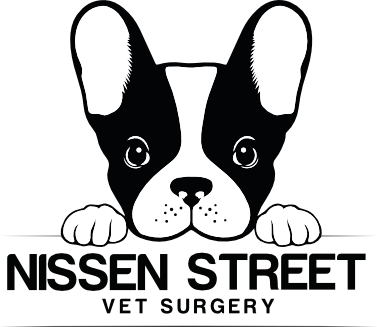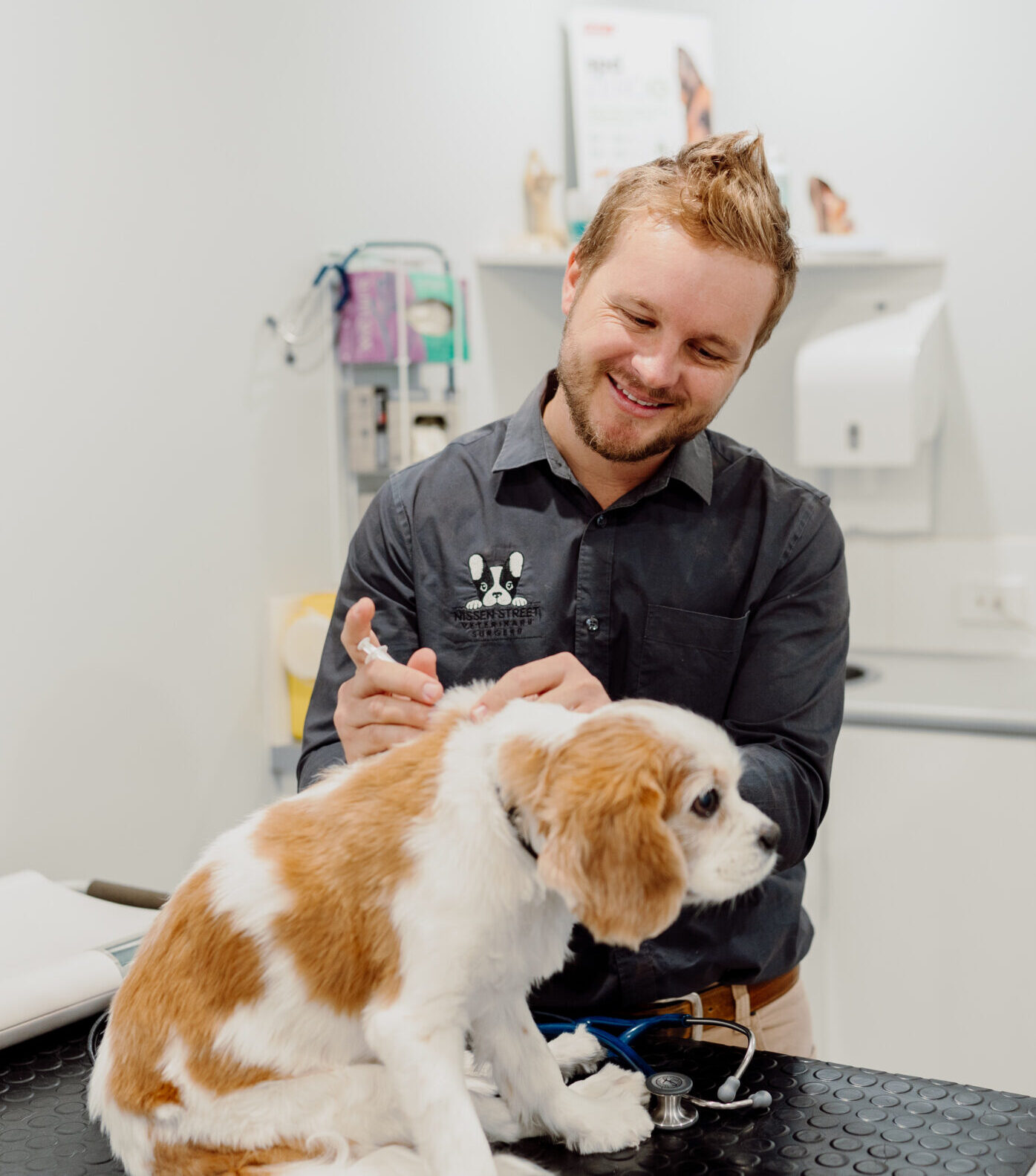Vaccinations
Vaccinating your pets is a crucial aspect of responsible pet ownership, as it offers several important benefits to both your pets and the larger community. Vaccination is a simple and effective tool to protect animals from preventable diseases, improve animal welfare and safeguard public health.
OUR SERVICES
Disease Prevention
Vaccines are designed to stimulate the immune system to create protective antibodies against specific diseases. By vaccinating your pets, you help protect them from potentially fatal or debilitating illnesses. Common vaccines for pets include those for rabies, parvovirus, distemper, and more.
Herd Immunity
When a significant portion of the pet population is vaccinated, it contributes to herd immunity. This helps protect vulnerable animals, such as very young, elderly, or immunocompromised pets, who may not be able to receive vaccines.
Public Health
Certain pet diseases, like rabies, can be transmitted to humans. Vaccinating your pets against rabies helps protect not only your pet but also your family and the community.
Long-Term Cost Savings
Preventing diseases through vaccination is often more cost-effective than treating them once they occur. Veterinary treatments for preventable diseases can be expensive, and in some cases, the outcome may not be as favorable as prevention through vaccination.
Travel & Boarding
If you plan to travel with your pet or board them in a kennel, most facilities will require proof of current vaccinations. This ensures the safety of all animals in those environments.
Peace of Mind
Knowing that your pets are protected against common and potentially deadly diseases can provide peace of mind for pet owners. It reduces the worry and stress associated with the potential for your pet to contract a preventable illness.
Ready to book your appointment with our friendly team?
It’s important to work closely with your veterinarian to develop a vaccination schedule tailored to your pet’s specific needs. Not all pets require the same vaccines, and the appropriate timing of vaccinations may vary based on factors such as your pet’s age, health, lifestyle, and local disease prevalence.
Vaccination Information for Dogs & Puppies
We currently use a C5 vaccine – this protects against five common or dangerous diseases that are easily spread between animals:
Canine Distemper
Canine Distemper is a highly contagious and serious viral disease that affects dogs that affects various systems in a dog’s body, including the respiratory, gastrointestinal, and central nervous systems.
Hepatitis
Hepatitis is caused by a virus, this disease results in chronic and irreversible liver damage.
Parvovirus
Parvovirus is is a highly resistant virus that causes severe vomiting and diarrhoea, and has caused numerous recent outbreaks in Australia. It requires prolonged and intensive medical therapy, and can be fatal in young animals.
Canine cough
Canine cough is often called Kennel Cough, this disease is rarely fatal, but can cause severe pneumonia. Our vaccine protects against the two most common forms, Bordatella bronchiseptica (bacteria) and Canine Parainfluenza (virus).
Vaccinating Puppies
Puppies gain some protection from their mother’s milk (as long as the mother has immunity) but this protection gradually declines around 6-8 weeks of age and we need to commence a vaccination program.
- 1st Vaccination: 6–8 weeks
- 2nd Vaccination: 10+ weeks.
- 3rd Vaccination is a kennel cough booster vaccination (if an intranasal vaccination was not given as part of the 2nd Vaccination) and final health check.
Vaccinating Adult Dogs
Adult dogs require their 1st booster vaccination 12 months following their puppy course, which is usually around 15 months of age.
- Triannual C3 Vaccinations – C3 vaccination lasts for 3 years in adult dogs.
- Annual Canine Cough Vaccination – needs to be given annually.
Vaccination Information for Cats & Kittens
We have different levels of vaccinations for our feline friends. Our base vaccination is the F3. This covers for:
Panleukopaenia
Panleukopaenia is the cat equivalent of canine parvovirus.
Herpesvirus
Herpesvirus causes significant disease of the upper airways and inflammation of the eyes. Cats become lifelong carriers, and stress can cause the disease to flare up and make your cat sick again. While the flare-ups can be treated, there is no cure.
Feline Calicivirus
Feline Calicivirus also causes upper respiratory tract disease, and affected cats often develop severe ulcers in their mouth. As with herpesvirus, cats become lifelong carriers and the disease can flare up when stressed. While the flare-ups can be treated, there is no cure.
Chlamydiosis
This bacteria causes severe conjunctivitis and may also cause a respiratory tract infection. While it can be treated, it is debilitating, and has the potential to be fatal in young kittens.
Feline Leukaemia Virus (FeLV) & Feline Immunodeficiency Virus (FIV)
In addition to the above four core vaccines, we also offer vaccination against Feline Leukaemia Virus (FeLV) and Feline Immunodeficiency Virus (FIV).
FeLV – can severely impact a number of different body systems, and infected cats are at high risk of developing cancer. It significantly shortens lifespan.
FIV – most commonly causes suppression of the immune system, making cats more prone to developing other diseases and making it harder to recover.
The most common route of infection for both of these diseases is through saliva, and thus is a particularly high risk for cats that get into fights.
If your cat goes outdoors, we strongly recommend they be vaccinated against these two diseases.
Vaccinating Kittens – F3 Vaccination
1st Vaccination: 8 weeks.
2nd Vaccination: Minimum 12 weeks (or 4 weeks after 1st).
3rd Vaccination: 14-16 weeks
Vaccinating Cats 6 months +
Vaccinating Cats – 6 months of age
F5 Vaccination – two vaccinations 4 weeks apart.
Will need a blood test to make sure the cat is negative for FIV, then three vaccinations given at 2-4 week intervals.
Annual Vaccination
Both F4 and FIV vaccinations require annual boosters.

